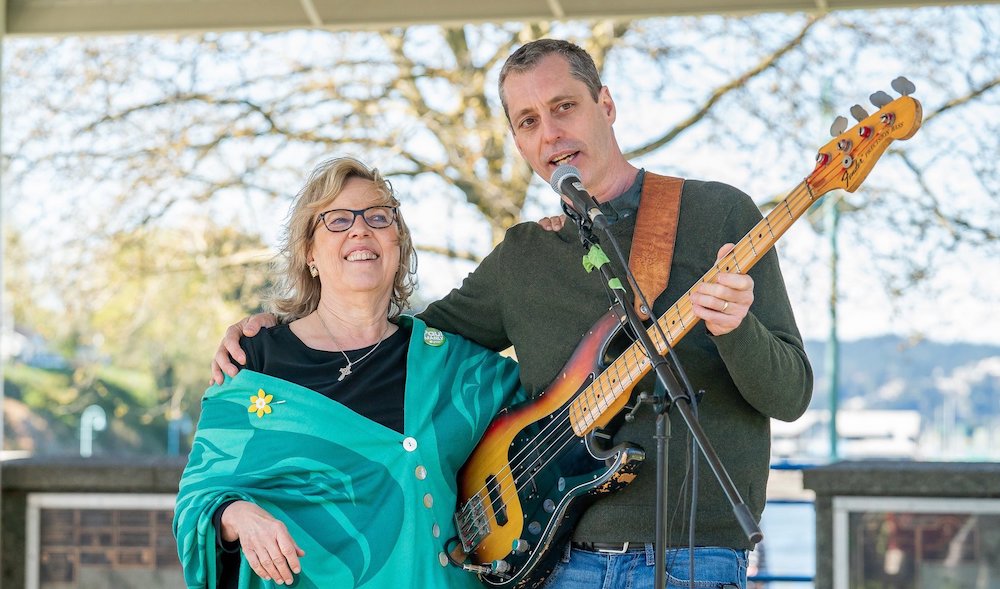We Albertans have been living in a bit of a bubble — a bitumen bubble.
As a consequence, we may not all have noticed what’s been happening on Canada’s West Coast.
So the potential significance of the victory in a federal by-election Monday by Paul Manly of the Green Party of Canada in British Columbia’s Nanaimo-Ladysmith riding may not yet be fully appreciated here in Wild Rose Country.
But then, what normal Albertan pays attention to political happenings on Vancouver Island when we’re obsessed with our pipedreams of a pipeline?
We might want to start paying attention, though, because for a variety of reasons the election of Canada’s second Green Party MP may well be a harbinger of things to come. Those things aren’t necessarily going to be good news from the perspective of a province that’s just elected a government committed to undoing all significant limits on petroleum production, carbon outputs and environmental regulation generally.
I know, I know, the United Conservative Party of Premier Jason Kenney pretends to be working on a climate-change plan of its own. But the reality, it’s pretty obvious, is a Trump-like strategy of undoing all of the inadequate measures taken by the previous NDP government as quickly as possible and then using a variety of excuses to stave off doing anything effective for as long as possible — or at least as long as profitable.
As has been argued here before, you can have climate change denial without denying climate change. That’s what happens when you deny you’re denying climate change while blocking or stalling all effective measures to do anything about it and encouraging distrust of the entire concept. This is exactly what the UCP has been, and continues to be, engaged in.
This may suit the Canadian Association of Petroleum Producers and like allies of the Kenney Government, but by God it doesn’t suit the residents of British Columbia’s coast — as a select group of them were able to make clear on Monday. And whether most Albertans like it or not, they may have something to say about whether we get that pipeline.
Of course several factors led to the outcome of the Nanaimo-Ladysmith by-election:
- Genuine environmental concern widespread on the West Coast, including deeply entrenched opposition to the passage of Alberta bitumen through the inland marine waters around Vancouver Island.
- The apparent collapse of the Liberal vote in the riding, possibly the result of disillusionment over Prime Minister Justin Trudeau’s SNC-Lavalin troubles, his increasingly perceived weakness on the environment file, or both.
- The pathetic state of the federal NDP and Jagmeet Singh’s unconvincing portrayal of a federal leader.
- The personal popularity of Manly — whose father James represented Cowichan-Malahat-The Islands in Parliament for three terms — who was foolishly dumped by the NDP during the leadership of the former Liberal Thomas Mulcair for his principled defence of the rights of the Palestinian people.
- The hard work in Parliament and fondness by Canadians for Green Party Leader Elizabeth May.
It’s hard to say, of course, what the most significant factors were in these circumstances, or whether conditions will prevail in a federal election in which the slight majority of Canadians who hold progressive views may be inclined to vote strategically to prevent the election of another Conservative government led by Andrew Scheer with Stephen Harper pulling his strings from Alberta.
But it’s no longer hard to imagine the planets coming into alignment for a Green tsunami on the West Coast as voters there, disillusioned by unkept Liberal and B.C. NDP environmental promises shift their support to May’s Green Party.
That could result in a Conservative victory. Or it could leave the Greens, as Canada’s new party of conscience, holding the balance of power in Parliament, a role the NDP thought they had put behind them under Jack Layton and sacrificed completely under Mulcair’s pivot to neoliberal austerity.
In the short term, that is bad news for Alberta pipeline advocates, including the ones in Rachel Notley’s NDP and the Alberta Federation of Labour, as Trudeau moves toward the green part of the political spectrum to avoid his government’s annihilation.
In the longer term, it could be even worse for pipeline promoters if the Greens end up in the position to keep Liberal heads above the rising political tide.
We shall see. In the meantime, Premier Kenney will be working hard, as he promised, to make Alberta look as bad as possible in the eyes of the citizens of other provinces.
On Tuesday, for example, the UCP pulled the plug on the NDP’s plans to create a series of parks and protection areas in the Bighorn Region of the eastern slopes of the Rocky Mountains.
Environment Minister Jason Nixon, a big supporter of the ATV users who have been laying waste to the environmentally fragile area, claimed the problem was the consultation process used by the NDP. Of course, the real problem was the Notley government consulted widely, not just the ATV crowd, which demands carte blanche to destroy whatever they want without limits or controls.
In the eyes of West Coast environmentalists, this may not be as serious an issue as the continued uncontrolled carbon emissions from the Athabasca oilsands, but it will do nicely in the rest of Canada as a powerful symbol of the environmental irresponsibility of the Kenney government.
David Climenhaga, author of the Alberta Diary blog, is a journalist, author, journalism teacher, poet and trade union communicator who has worked in senior writing and editing positions with The Globe and Mail and the Calgary Herald. This post also appears on David Climenhaga’s blog, AlbertaPolitics.ca.
Photo: Paul Manly/Facebook
Help make rabble sustainable. Please consider supporting our work with a monthly donation. Support rabble.ca today for as little as $1 per month!





